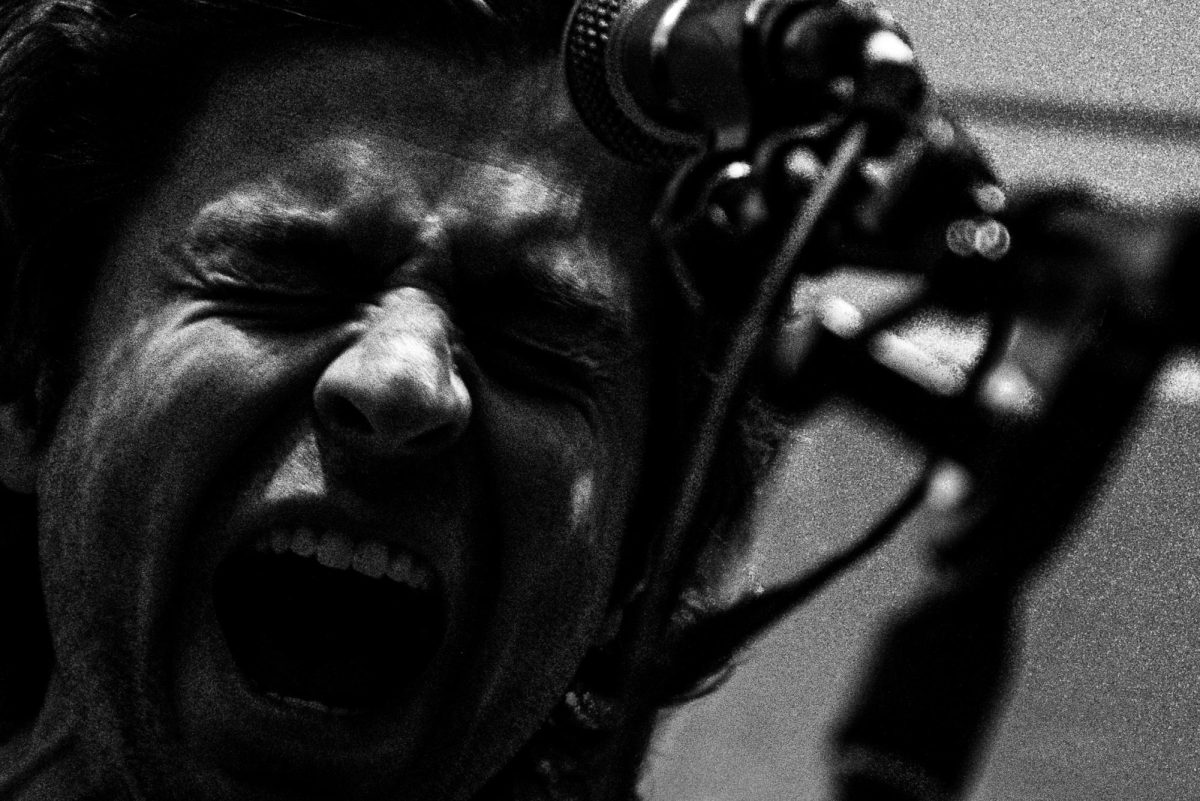Keep Ya Head Up: Kendrick Lamar’s Double Conscience
February 19, 2015
 Courtesy of hotnewhiphop.
Courtesy of hotnewhiphop.
A day after winning the Grammy for Best Rap Song & Performance his single “iÛ, Kendrick Lamar released “The Blacker The Berry.” The newest single, or statement’ as Lamar prefers to call the music he releases, is a much darker song than the award-winning “i.” Certainly there is a clear duality between the singles Kendrick has released off his much anticipated sophomore album so far.
When “i” was released many fans were confused. The song is upbeat and unabashedly positive, very much in contrast to the usual gritty Kendrick Lamar sound. Sampling the Isley Brothers, Kendrick speaks on overcoming depression and one’s circumstance. “The Blacker The Berry” is something completely different; where “i” was a celebration of blackness, “The Blacker The Berry” addresses, with aggravated precision, racism, self-hatred and apathy both in the African American community and larger American society.
This expression of double consciousness has long been an integral part of the black narrative, and in this case the contradictory messages of “i” and “The Blacker The Berry” seem to be purposefully playing to that same split narrative. Indeed, Top Dawg Entertainment co-founder Terrence “Punch” Henderson tweeted a picture following the drop of “The Blacker The Berry” with side by side images that compares two labeled mugshots; one of Martin Luther King Jr. with the word “i” above his face and a similar formatted Malcolm X mugshot labeled “The Blacker The BerryÛ.
I think so. pic.twitter.com/XbH03vWhCz
— Punch (@iamstillpunch) February 10, 2015
Hip hop artists often incorporate references to civil rights and Black Power leaders and movements in their lyrics. Kendrick himself has worked names like Bobby Seale, Huey Newton, and Marcus Garvey as well as King and X into previous songs, often using their names to provoke certain sentiments or make specific points. In his song “Backseat FreestyleÛ Lamar raps “Martin had a dream, Kendrick have a dream,” seemingly to convey to the listener the importance of his words as well as the continuation of Dr. King’s legacy within his own music.
In the case of his two newest songs, however, Kendrick does not mention either leader by name, but similar sentiments are still present. On the “i” record Kendrick calls for peace in his community as well as loving oneself and one another. The song’s spiritual and peace-loving undertones and calls for peace certainly appear to follow King’s legacy and beliefs. In contrast, “The Blacker The Berry” has a very Malcolm X-like undertone; Kendrick establishes a tone of black pride and defiance against an oppressive, white American society but condemns the epidemic of black on black crime as undermining potential for unity and progress.
Juxtaposing these two singles, we see the depth not only of Kendrick’s lyrical skills but his conceptual skills as well. Using different flows, beats and frames of reference he has successfully captured two different understandings of racial context and experience and articulated them to the world. With the complete album hopefully somewhere on the horizon we can only guess what Kendrick Lamar will give us next.













